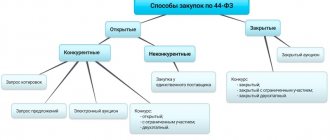Having gone through all the stages of declaring an individual bankrupt, the citizen will receive the long-awaited freedom from overwhelming debt obligations. If a settlement agreement has not been concluded or a debt restructuring agreement has been signed, then the sale of property becomes a mandatory condition of the procedure. By selling it, it will be possible to partially or fully cover the debt. This is the final stage in the insolvency case; let’s look at it in more detail.
How is property sold?
According to the law, the sale of the debtor's property begins if:
- The individual does not have an official income sufficient to cover the loan, and there are no options to restore solvency in the next 3 years. The citizen can no longer repay the loan in accordance with the payment schedule and stated this at the first hearing of the bankruptcy court.
- The payment schedule for the restructured debt established by the court and agreed upon with the borrower is not being fulfilled.
For many debtors, this stage of bankruptcy evokes the wrong associations - images of people taking every last pin out of the house. But, according to Russian legislation, in practice this is absolutely not the case - implementation is a long and step-by-step process.
Stages of property sale
The process of selling the borrower's property includes:
- Inventory. If a citizen himself submits documents for recognition of insolvency, then he voluntarily provides information about all his property. In any case, the accuracy of the information is checked by a personal financial manager using various databases - GIMS, Rosreestr, State Traffic Safety Inspectorate, Federal Tax Service, Gostekhnadzor, etc.
- Formation of the bankruptcy estate. Here the presence of property declared by the bankrupt is checked. The list for sale excludes the only housing or land (mortgage real estate is not excluded), personal items (equipment and furniture) and those whose market value does not exceed 10,000 rubles. The debtor is also left in the account with money within the minimum wage.
- Transaction analysis. The financial manager in this bankruptcy case examines all transactions of the bankrupt over the past 3 years. Transactions with real estate, cars and other valuable property may be canceled and placed on the general list for sale. The specialist also evaluates the applicant’s situation to determine whether the bankruptcy is fictitious.
- Valuation of the borrower's property. A qualified state expert assesses the value of the debtor's property. If a citizen does not agree with the assessment amount, he can invite an independent specialist and challenge the results of the examination.
- Official announcement of the auction, registration of participants and holding of the event. By law, trading can only take place electronically.
- Debt repayment. The proceeds are distributed among creditors, remuneration to the financial manager and all legal costs must be paid. The manager may also offer the debtor's property to the creditors as payment for the loan.
- Drawing up a report for financial managers. It is necessary to report to the court and creditors about the results of the auction and how much money was not enough to fully repay the loans.
After this, the balance of the debt is written off from the borrower, and the citizen is declared bankrupt.
A bankrupt citizen may lose relief from debts even after the completion of the sale of his property
On August 5, the Supreme Court of the Russian Federation issued Ruling No. 308-ES17-21032(2.3) in the case of including a company that received the right of claim against a bankrupt citizen after releasing him from obligations to creditors, into the third priority of creditors of the debtor.
On May 4, 2021, as part of the bankruptcy case of Tatyana Ozerova, the court included the claims of Russian Agricultural Bank JSC in the amount of over 170 million rubles. in the third place of the register of claims of its creditors. The specified amount included the debt under the loan agreement, interest on the loan, penalties and bank commission.
The very next day, the court completed the procedure for selling the debtor’s property, refusing Tatyana Ozerova’s release from her obligations. Subsequently, the appeal nevertheless freed the citizen from fulfilling the creditors’ demands, canceling the corresponding court ruling in the part appealed by the debtor.
In January 2021, the bank entered into an assignment agreement with Agro LLC, under the terms of which the agricultural firm transferred the right of claim against the debtor in full. The company paid the bank the value of the rights assigned to it.
Subsequently, the agricultural firm went to court with a statement that it is the legal successor of the creditor bank, and with a request to include it in the third line of the register of claims of the debtor's creditors. During the trial, the applicant referred to the debtor's dishonest behavior, expressed in concealing property (accounts receivable), through which the creditors' claims could be satisfied.
The courts of the first and second instances satisfied the applicant's request, establishing the existence of grounds for a procedural change. At the same time, the appeal court rejected Tatyana Ozerova’s argument that her rights and legitimate interests were violated as a result of the replacement in the register.
Subsequently, the district court overturned the judicial acts of the lower authorities. He proceeded from the fact that material succession in civil law did not arise, since the bank transferred to the agricultural company a claim from which the debtor was released.
In their cassation appeals, the agricultural company and the bank asked the Supreme Court of the Russian Federation to cancel the decision of the district court and uphold the judicial acts of the first and second instances.
Having studied the circumstances of case No. A32-37685/2015, the Judicial Collegium for Economic Disputes of the Supreme Court of the Russian Federation agreed that what is enshrined in Art. 213.28 of the Bankruptcy Law, the rule on releasing a citizen from fulfilling the claims of creditors (debts) following the results of a bankruptcy procedure is, in fact, an extraordinary way to terminate the obligations of an insolvent individual who meets the criteria of good faith.
At the same time, the highest court noted that the above rule provides for cases when writing off the debt of a bankrupt citizen is not allowed. Consequently, circumstances preventing the debtor from freeing himself from existing obligations (clause 4 of Article 213.28 of the Bankruptcy Law) can be established even after the completion of the sale of the debtor’s property.
“Thus, if facts of concealment by a debtor citizen of property or illegal transfer of property to third parties are revealed at the request of a bankruptcy creditor, an authorized body or a financial manager, the court’s ruling on the completion of the restructuring of the citizen’s debts or the sale of the citizen’s property may be revised due to newly discovered circumstances with the resumption of proceedings on bankruptcy case of the debtor,” noted in the definition.
The Supreme Court of the Russian Federation concluded that the completion of a citizen’s bankruptcy procedure is not an obstacle to resolving the issue of succession on a claim from which the debtor is exempt. In this regard, he canceled the decision of the district court and upheld the decisions of the courts of first and appellate instances.
Lawyer of the legal bureau "OLIMP" Ivan Khorev explained that the Supreme Court examined the question of whether succession occurred in a material sense due to the fact that on the date of assignment the citizen-debtor was released by the court from fulfilling obligations, including the one that was assigned . “In this case, the Court came to the conclusion that succession is possible and does not violate the provisions of the current legislation,” the expert said.
At the same time, he noted with regret the lack of detailed legal analysis in the definition. Thus, the Supreme Court of the Russian Federation did not explain whether the obligation terminates in the material sense after the citizen is released from debts as a result of bankruptcy (including this obligation), or whether it terminates not in the material and legal sense as such, and the debtor is released by the court only from fulfillment this obligation, but at the same time the latter continues to exist.
According to Ivan Khorev, the lower courts proceeded mainly from the fact that, in procedural terms, succession is possible at any stage of the arbitration process: the rights of the debtor are not violated, and, accordingly, there are no obstacles to such succession. “What may be important here is that the bank’s claim was not repaid. According to paragraph 1 of Art. 213 of the Bankruptcy Law, for example, a bank would have the right, after completing the procedure for the sale of the property of a citizen-debtor, to subsequently apply for a review of this judicial act with a requirement to foreclose on the property of a citizen-debtor if it turns out that the citizen-debtor hid from creditors or illegally transferred his property to third parties,” the expert suggested.
He added that then a creditor whose claims are not repaid during the bankruptcy proceedings of a citizen-debtor (even if the citizen is released from fulfilling obligations) continues to remain a creditor with a certain set of procedural rights: “Accordingly, the assignment of one’s right as a creditor to another person in this case is legal and not contrary to current legislation.” In this regard, Ivan Khorev noted that due to the lack of a more comprehensive analysis by the Supreme Court of this issue, the case under consideration leaves a topic for debate.
In a commentary to AG, lawyer, partner of Yurlov and Partners Law Firm Kirill Gorbatov noted that the RF Armed Forces formulated the correct position on the possibility of succession after completion of the procedure for the sale of the debtor’s property with reference to Art. 213.29 of the Bankruptcy Law.
“In theory, the question of whether completing the procedure for selling a citizen’s property is a way to terminate his obligations remains debatable. Still, the Bankruptcy Law talks about “exemption from further fulfillment of obligations to creditors,” which, from one point of view, may indicate that the obligation has been terminated. On the other hand, we can talk about the termination of the debtor’s obligation to fulfill the obligation, while if the debtor wants to pay the debt to the creditor, he has the right to do so, and there is no unjust enrichment on the creditor’s side,” the expert explained.
Kirill Gorbatov also noted that in the bankruptcy of legal entities, the law says that after completion of the procedure, the creditors’ obligations are considered “extinguished”: “This wording leaves no doubt that we are talking about the termination of the obligation.”
What property will be sold?
Let's take a closer look at what the debtor may lose as a result of the sale of property.
The law requires that only “excess property” be put up for auction, that is, that which the bankrupt individual, in the opinion of the court, can do without. The list of inviolable property that is not subject to sale is specified in Art. 446 of the Civil Procedure Code. This includes:
- Pets and food.
- Property that the bankrupt uses for professional activities and, thus, provides his income. For example, a sewing machine from a seamstress.
- The borrower's only home or the land on which it is located. An exception is housing with a mortgage.
- The borrower's personal belongings (for example, clothes and shoes), home furnishings, if the items cannot be classified as luxury items.
There is an inaccuracy in the law regarding the clause on “luxury goods”. The fact is that equipment such as a TV or washing machine can be classified as both a necessity and a luxury. There is no consensus on this matter yet, so when making an inventory of property, you can challenge the opinion of the bailiffs and exclude some things from the list.
In addition, the position of the financial manager plays an important role, since he evaluates the property and may or may not include some equipment in the list for sale. Since this specialist works for a percentage of the property sold, it is often easier for him not to waste time with a used microwave or TV and exclude them from luxury items.
What will happen to the spouse's property?
In theory, during the insolvency procedure, the financial manager can list not only the debtor’s property for sale, but also the property of his spouse. This is completely legal. However, government agencies can only disclose data on property registered to the borrower, so the spouse’s property remains out of sight of the manager.
On the other hand, the search for property registered in the name of a spouse can be initiated by a creditor through litigation. In practice, this does not happen often, since it is a very labor-intensive and time-consuming process.
If, after all, the spouse’s property is identified, then the financial manager, through the court, adds it to the list for sale. If the property is mortgaged, for example, there is a mortgage on a house, then it is sold through the mortgage lender. In any case, the bankruptcy procedure will become longer.
When does the court order the sale of property in bankruptcy?
The process of selling the debtor's property represents the second and final stage in the bankruptcy procedure of a citizen.
The court appoints it in the following cases:
- in the absence of a restructuring plan that satisfies the interests of all parties and the legal rights of the debtor;
- if the debtor fails to comply with the requirements of the restructuring process (repeated delays);
- when one of the parties submits a petition to initiate the sale of property;
- in case of violation by the debtor of the terms of the settlement agreement concluded with creditors during bankruptcy;
- if the court rejects the proposed restructuring plan (due to economic inexpediency, as well as violations in its preparation);
- if, based on the results of voting for the introduction of a restructuring plan, the meeting of creditors did not approve it.
To save time and money, a bankrupt should notify the judge when filing an application (or during the first court hearing) that the restructuring procedure has been skipped
debts and transition directly to the procedure for selling property. This will save at least 25 thousand rubles, as well as from 3 months to 3 years, which would have been spent on the full bankruptcy process.
25,000 rubles - remuneration of the financial manager. It is paid for each procedure separately. If, at the request, the court skips the restructuring, immediately moving on to the sale of the bankrupt’s property, accordingly, the manager’s work will have to be paid only once.
The procedure for selling property in the event of bankruptcy of individuals is essentially a tool for repaying debts to creditors in the absence of a stable source of income. Moreover, the average time to sell property is 6–8 months, which is much faster than debt restructuring, which can take 3 years.
Since September 2021, out-of-court (simplified) bankruptcy has become available. The new procedure does not provide for the sale of property
. Debts up to 500 thousand rubles. written off upon application to the MFC. A prerequisite is the presence of closed enforcement proceedings, proving that the debtor does not have property to repay the debt.
What if there is nothing to implement?
This is the case when bankruptcy is not only real, but all its stages will pass much faster. After the financial manager is convinced that there is “nothing to take” from the borrower, he sends a report on the results of his work to the arbitration court and the case ends with the individual being declared bankrupt.
However, the borrower must have funds to pay the following costs of the insolvency procedure:
- costs for a financial manager;
- announcement of insolvency in the Kommersant publication;
- several necessary publications in the Unified Federal Register of Bankruptcy Information.
In total, these costs do not exceed 15,000 rubles. If the borrower does not have any funds to pay this amount, then he must have one of these resources:
- a letter of guarantee from an individual who undertakes to pay for the procedure;
- stable income above the subsistence level;
- inviolable property with a value exceeding 20,000 rubles.
Only in this case will it be possible to submit documents to declare an individual insolvent.
Restrictions imposed on the debtor in bankruptcy
After the procedure for the sale of property is introduced, the debtor is subject to a number of restrictions. Let’s say the debtor loses the right to dispose of his own property, which is part of the bankruptcy estate and is subject to sale, loses the right to open accounts and deposits in banking institutions, to dispose of funds already on deposit. All this is done on behalf of an individual by a financial manager. In addition to all this, he conducts court cases that relate to the property rights of the debtor, and makes decisions on his behalf regarding the rights of the debtor as a participant in a legal entity (for example, takes part in voting at a general meeting).
Results
Admitting your insolvency is a responsible step. It is very difficult to decide to inventory and sell property, as well as to jeopardize the property of a spouse; in addition, the bankruptcy procedure takes a lot of time. However, as a result, the citizen gets the opportunity to start building his financial flows anew and not be considered as “eternal debtors” to banks.
After selling the “excess property” and paying off the debts as much as possible, the individual reaches the finish line of the bankruptcy procedure - all that remains is to wait for the official court decision regarding this.







